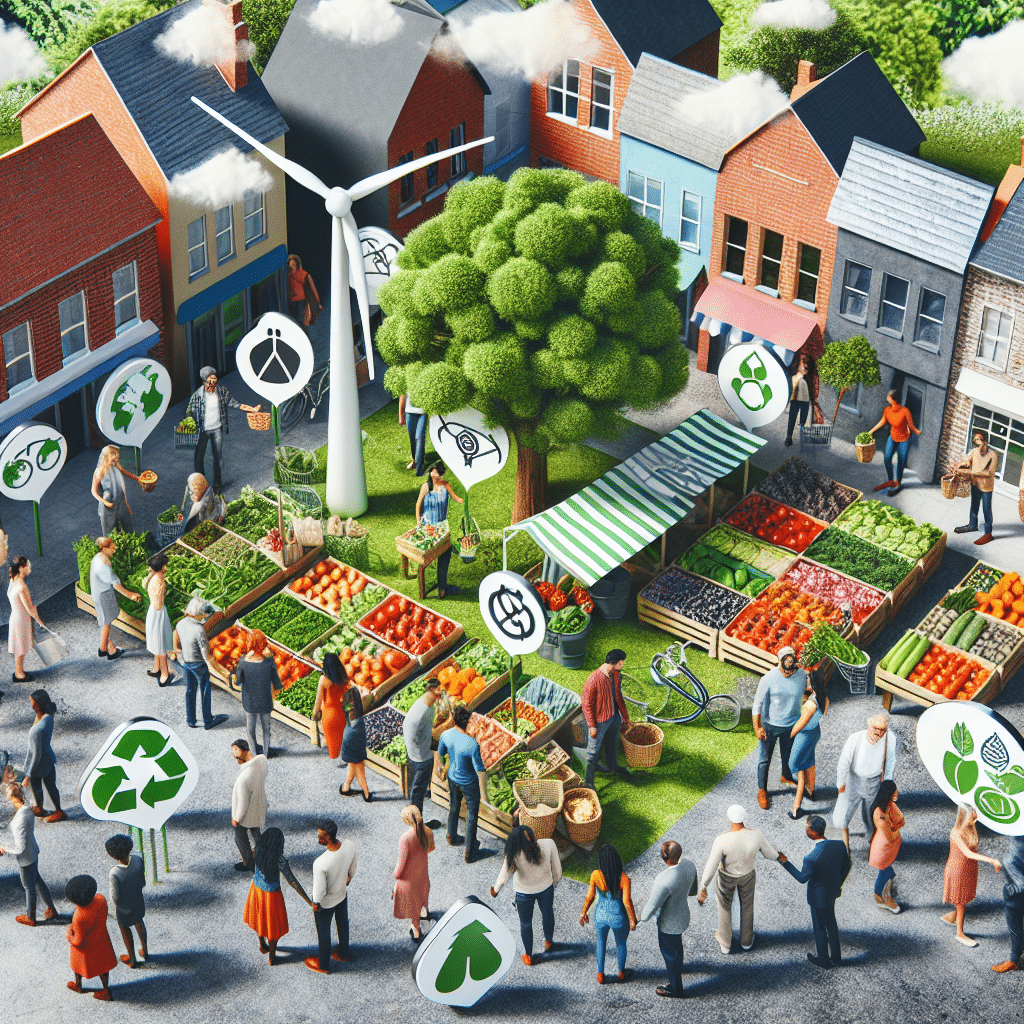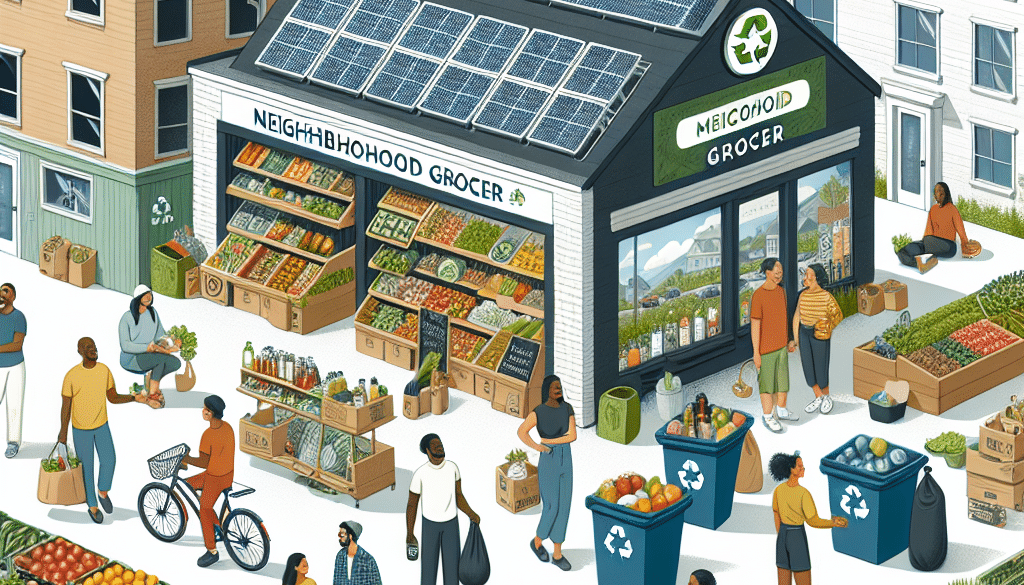Advancing Sustainable Food Access And Esg Strategies
-
Table of Contents
- Advancing Sustainable Food Access and ESG Strategies: A Comprehensive Guide
- The Importance of Sustainable Food Systems
- Challenges to Sustainable Food Access
- Integrating ESG Strategies in the Food Sector
- Case Studies: Success Stories in Sustainable Food Access
- Statistical Insights into Sustainable Food and ESG
- Implementing ESG Strategies for Sustainable Food Access
- Conclusion: The Path Forward for Sustainable Food Access and ESG
- ETprotein: Enhancing Sustainable Diets with High-Quality Protein Products
Advancing Sustainable Food Access and ESG Strategies: A Comprehensive Guide

In recent years, the global community has increasingly recognized the importance of sustainability in the food sector. As the world grapples with climate change, resource depletion, and social inequalities, the need for sustainable food access and robust Environmental, Social, and Governance (ESG) strategies has never been more pressing. This article explores the advancements in sustainable food access and the integration of ESG strategies that are essential for a resilient future.
The Importance of Sustainable Food Systems
Sustainable food systems are vital for ensuring food security, promoting healthy diets, and minimizing environmental impact. They involve producing food in ways that protect ecosystems, do not exhaust natural resources, and support the livelihoods of farmers and communities. According to the Food and Agriculture Organization (FAO), sustainable food systems can help achieve the United Nations Sustainable Development Goals (SDGs), particularly those related to ending hunger, promoting good health, and fostering responsible consumption and production.
Challenges to Sustainable Food Access
Despite the clear benefits, several challenges hinder the widespread adoption of sustainable food practices. These include:
- Climate change and its impact on agriculture
- Loss of biodiversity and the degradation of ecosystems
- Unequal food distribution leading to hunger and obesity
- Over-reliance on non-renewable energy sources
- Waste generation and inefficient resource use
Addressing these challenges requires a multifaceted approach that encompasses policy reform, technological innovation, and community engagement.
Integrating ESG Strategies in the Food Sector
ESG strategies are critical for businesses seeking to operate sustainably and ethically. In the food sector, ESG considerations can guide companies in making decisions that positively impact the environment, society, and governance structures. Key ESG strategies include:
- Reducing carbon footprints through sustainable farming practices
- Ensuring fair labor conditions and equitable supply chains
- Implementing transparent governance and ethical business practices
- Investing in renewable energy and waste reduction technologies
- Supporting local economies and smallholder farmers
By adopting these strategies, food companies can contribute to a more sustainable and just food system.
Case Studies: Success Stories in Sustainable Food Access
Several organizations and businesses have successfully implemented sustainable food access and ESG strategies. For instance:
- A cooperative in Africa increased crop yields by using organic farming methods, improving food security for the community.
- A multinational corporation reduced its carbon footprint by sourcing ingredients locally and investing in energy-efficient technologies.
- A startup developed a platform to connect consumers directly with local farmers, reducing food waste and supporting the local economy.
These examples demonstrate the potential for sustainable practices to create positive change within the food industry.
Statistical Insights into Sustainable Food and ESG
Statistics highlight the growing importance of sustainable food systems and ESG strategies:
- According to a 2021 report by the FAO, sustainable agriculture can increase food production by 58% while reducing greenhouse gas emissions.
- A survey by Nielsen found that 73% of global consumers would change their consumption habits to reduce their environmental impact.
- Research by McKinsey & Company revealed that companies with strong ESG credentials had a 10% lower cost of capital compared to their peers.
These figures underscore the economic and environmental benefits of embracing sustainability in the food sector.
Implementing ESG Strategies for Sustainable Food Access
To advance sustainable food access, companies and policymakers must prioritize ESG strategies. This can be achieved through:
- Developing policies that incentivize sustainable agriculture and penalize unsustainable practices
- Investing in research and development for sustainable food technologies
- Creating educational programs to raise awareness about sustainable food choices
- Building partnerships between governments, businesses, and civil society to foster collaboration
By taking these steps, stakeholders can ensure that sustainable food access becomes a reality for all.
Conclusion: The Path Forward for Sustainable Food Access and ESG
The advancement of sustainable food access and ESG strategies is essential for building a resilient and equitable food system. By addressing the challenges and leveraging the opportunities presented by sustainability, stakeholders can create a food sector that benefits people, the planet, and profits. The key takeaways include the importance of sustainable food systems, the integration of ESG strategies, the success stories that inspire action, and the actionable steps for implementation. As the world moves towards a more sustainable future, the food sector must lead the way in embracing these transformative practices.
ETprotein: Enhancing Sustainable Diets with High-Quality Protein Products
In line with advancing sustainable food access, ETprotein offers a range of high-quality protein products that support a sustainable diet. Their organic bulk vegan proteins and L-(+)-Ergothioneine (EGT) are produced with a commitment to environmental responsibility and ethical sourcing. ETprotein’s offerings are ideal for consumers seeking to incorporate sustainable and nutritious protein sources into their diets. By choosing ETprotein, individuals and businesses can contribute to a more sustainable food system while enjoying the benefits of clean, plant-based proteins.
About ETprotein:
ETprotein, a reputable protein and L-(+)-Ergothioneine (EGT) Chinese factory manufacturer and supplier, is renowned for producing, stocking, exporting, and delivering the highest quality organic bulk vegan proteins and L-(+)-Ergothioneine. They include Organic rice protein, clear rice protein, pea protein, clear pea protein, watermelon seed protein, pumpkin seed protein, sunflower seed protein, mung bean protein, peanut protein, and L-(+)-Ergothioneine EGT Pharmaceutical grade, L-(+)-Ergothioneine EGT food grade, L-(+)-Ergothioneine EGT cosmetic grade, L-(+)-Ergothioneine EGT reference grade and L-(+)-Ergothioneine EGT standard. Their offerings, characterized by a neutral taste, non-GMO, allergen-free attributes, with L-(+)-Ergothioneine purity over 98%, 99%, cater to a diverse range of industries. They serve nutraceutical, pharmaceutical, cosmeceutical, veterinary, as well as food and beverage finished product distributors, traders, and manufacturers across Europe, USA, Canada, Australia, Thailand, Japan, Korea, Brazil, and Chile, among others.
ETprotein specialization includes exporting and delivering tailor-made protein powder and finished nutritional supplements. Their extensive product range covers sectors like Food and Beverage, Sports Nutrition, Weight Management, Dietary Supplements, Health and Wellness Products, and Infant Formula, ensuring comprehensive solutions to meet all your protein needs.
As a trusted company by leading global food and beverage brands and Fortune 500 companies, ETprotein reinforces China’s reputation in the global arena. For more information or to sample their products, please contact them and email sales(at)ETprotein.com today.












